Herniated DiscOverview
The vertebrae of the spine are separated and cushioned by rubbery discs composed of a tough outer casing and a soft center. A herniated disc occurs when that casing cracks, allowing the soft center to leak through, which can irritate nearby nerves and result in pain, numbness, or weakness in an arm or leg. It is a common condition affecting over three million Americans each year, most of whom are over the age of 40. Most herniated discs occur in the lower back, but they can also occur in the neck. Causes The most common cause of disc herniation is the normal wear and tear that occurs with age, known as disc degeneration. As we age, spinal discs lose some of their water content, which makes them more susceptible to cracks or ruptures. In some cases, a disc herniates due to lifting heavy items with back muscles instead of leg muscles; consequently, there is a greater risk for disc herniation in occupations that require frequent lifting, pulling, or pushing. More rarely, a disc can herniate after trauma to the back, such as a fall. Other risk factors for herniated discs include excess weight and genetics. Symptoms Some herniated discs do not cause symptoms, but when symptoms do occur, the most common is pain in the arm or leg that is affected by the irritated nerve(s) in question. Lower back disc herniation usually results in pain in the buttocks, thigh, or calf. Herniated discs in the neck cause pain in the arm or shoulder. The pain is often accompanied by numbness and tingling as well as muscle weakness. Treatment Conservative treatment, including medication and physical therapy, provides relief to 90% of people suffering from herniated discs. Types of medication include over-the-counter and narcotic pain medicines, nerve pain medication, muscle relaxants, and cortisone injections. Physical therapy includes exercises, proper spinal alignment and positioning, heat/ice treatments, or bracing. In some cases, such as those that include a loss of bowel or bladder control, surgery may be necessary to provide relief. |
Are you ready to take control of your neck pain? Contact the pain experts at Spine Pain Diagnostics Associates to help get you relief. |
contact
|
faq |
|
